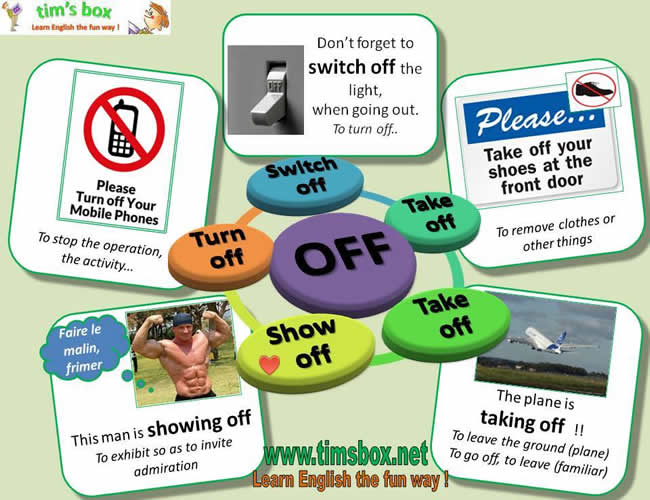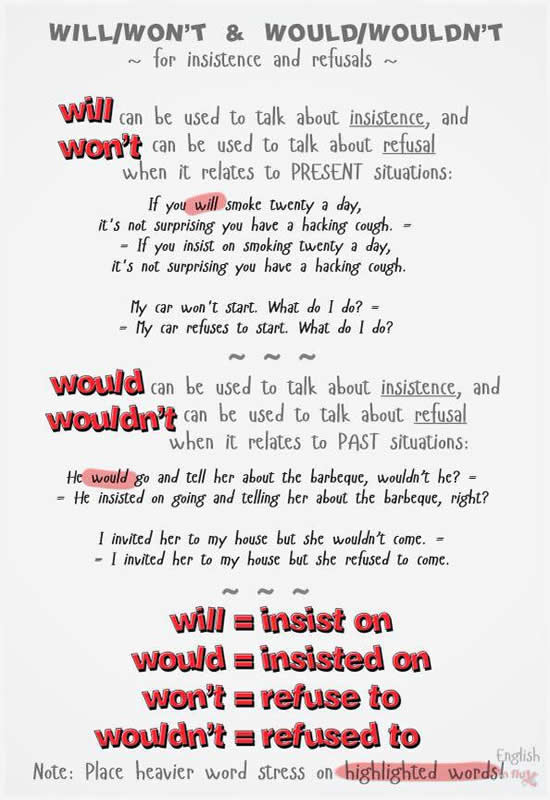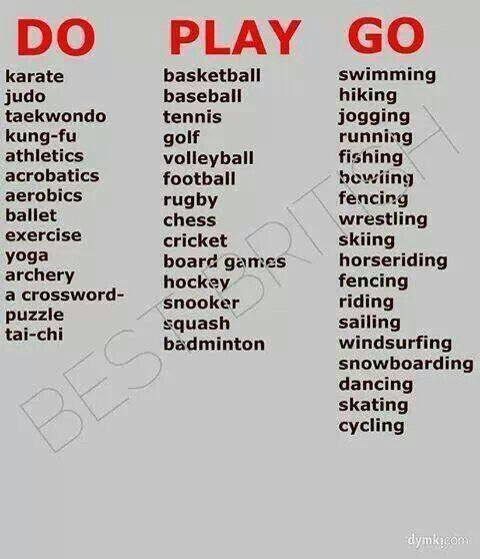Time Clauses – English Grammar
The time clauses in the English language are introduced by conjunctions such as after, as soon as, before, till, until, when, whenever, while or expressions such as the minute, the moment etc.
We do not use the future tense (will) in a time clause to describe future activities.
Compare:
I’ll come back home and I’ll do it. x I’ll do it when I come back home. (when I come is the time clause)
You will push this button and the door will open. x As soon as you push this button the door will open.
Don’t stand up. First I’ll tell you. x Don’t stand up till (until) I tell you.
You’ll need my car. Take it. x Whenever you need my car you can take it.
You’ll tidy up the house and I’ll do the shopping. x You’ll tidy up the house while I do the shopping.
You will drop the bomb and it will explode. x The moment you drop the bomb it will explode.
Similarly, other future forms also change to the present simple tense in time clauses.
He is going to leave. The room will be empty. x As soon as he leaves the room will be empty.
We are moving next week. Then we’ll call you. x When we move next week we’ll call you.
If we describe an action that is happening at the same time as another future action (the two activities are simultaneous), we use the present continuous tense in the time clauses.
We are going to cut the grass. You’ll pick the apples. x While we are cutting the grass you’ll pick the apples.
The future perfect tense and future perfect continuous become the present perfect and present perfect continuous in time clauses.
I’ll have finished my homework in ten minutes. Then I’ll go out. x After I have finished my homework I’ll go out.
They will have repaired our car by the weekend. And we will go for a trip. x As soon as they have repaired our car we will go for a trip.
Be careful!; If when introduces a noun clause which is the object of a verb, it is followed by a future tense.
I don’t know when she will arrive. I can’t remember when the race will start. You must decide when you will meet them.
In all these sentences the question is: What? (I don’t know what, I can’t remember what, You must decide what.
). That is why it is not a time clause.
Source: http://www.e-grammar.org/




Thanks for the article you’ve posted. It’s very useful.
Thank you.